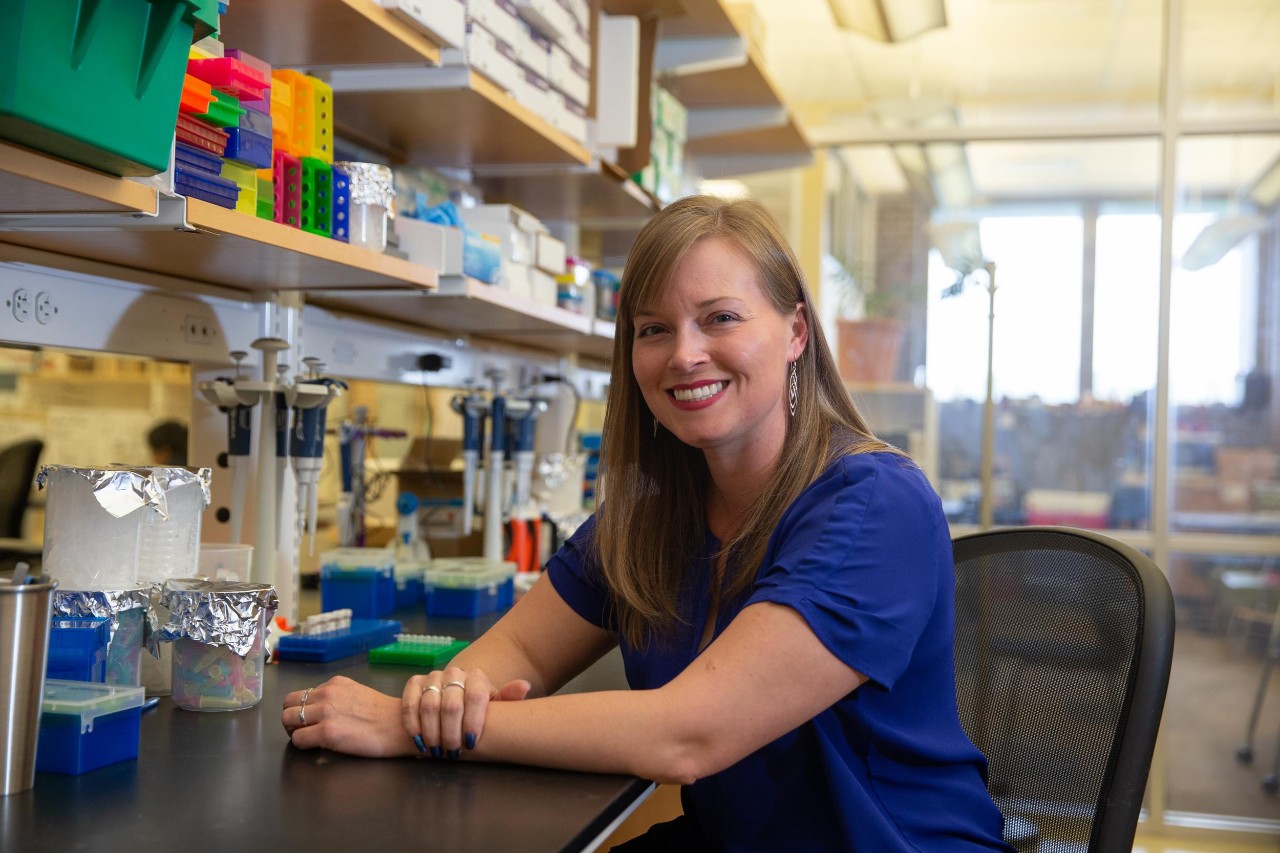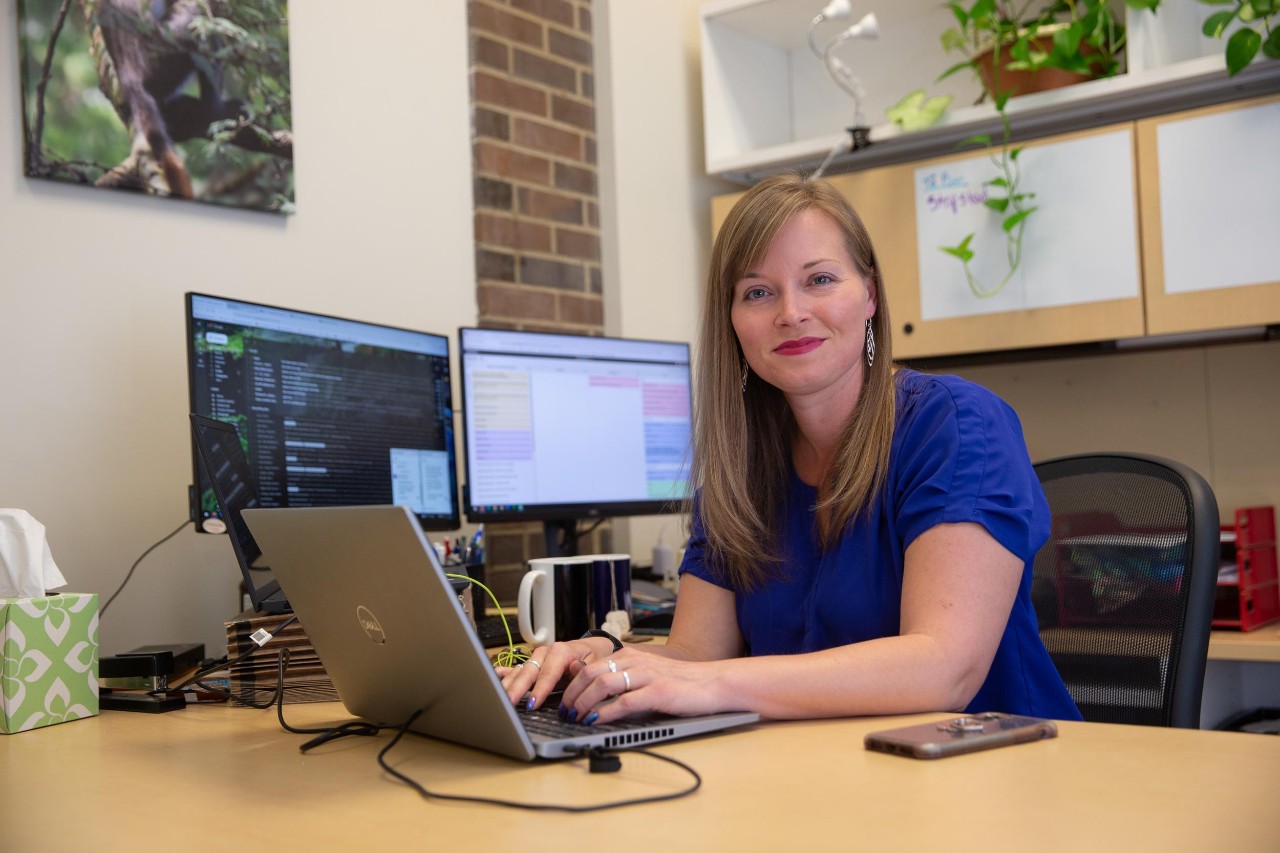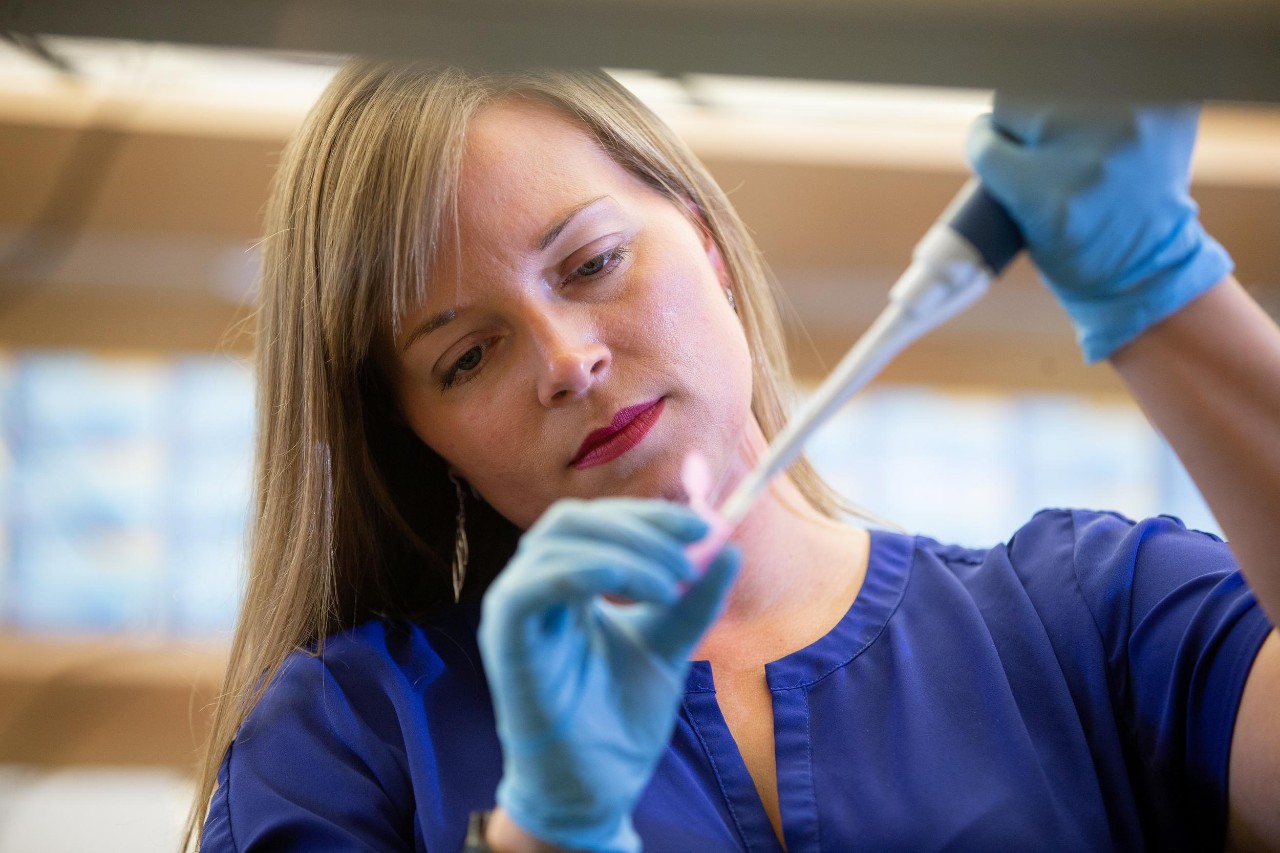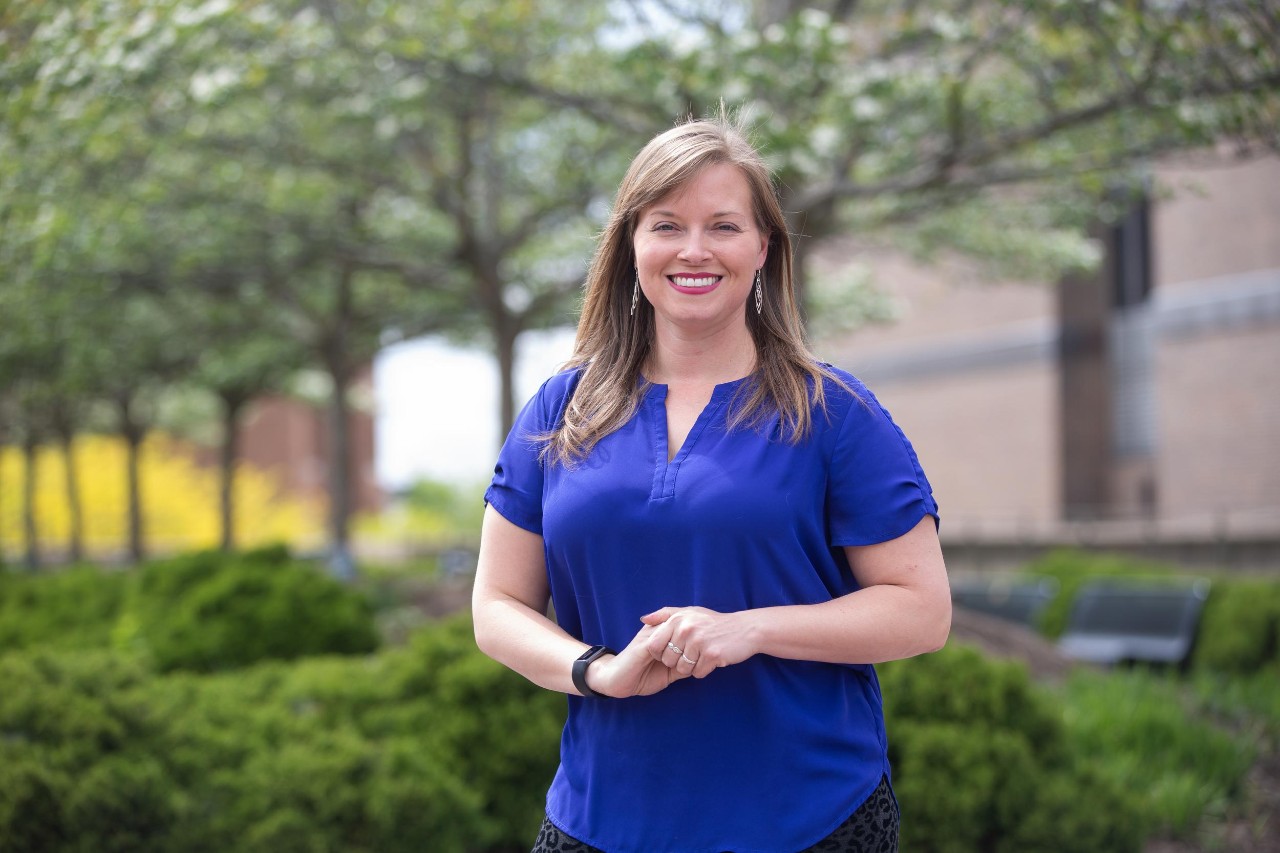
How to make the faculty job search less discouraging
Pilot program offers critiques of job applications to aspiring STEM faculty
Finding a full-time faculty job can be a daunting challenge for doctoral graduates.
University of Cincinnati anthropologist Kathleen Grogan says postdoctoral researchers can benefit from having peers review their applications.
She learned this herself while working as a postdoctoral researcher. She realized that she and other postdocs routinely solicited feedback in an online messaging app dedicated to aspiring scientists.
“I was on the job market and wanted people with broad scientific expertise to look at my stuff,” said Grogan, an assistant professor in UC’s College of Arts and Sciences. “And I saw there were repeated requests on the Slack channel asking people to look at their applications, too.”
So she set up a pilot program that invited postdoctoral researchers to review each others’ job application packages. These documents include a curriculum vitae, cover letter and research, teaching and diversity statements.
She wrote about the pilot program in a study published in the journal Proceedings of the Royal Society B.

UC Assistant Professor Kathleen Grogan says postdoctoral researchers feel less discouraged in pursuing a faculty position when they get feedback about their applications from peers. Photo/Andrew Higley/UC Marketing + Brand
Postdoctoral research is a bit like career purgatory — a weigh station between defending a doctoral dissertation and accepting that first academic faculty position.
“It’s a precarious existence and you feel it,” Grogan said. “A postdoc has to apply for new jobs almost immediately. I was very aware of my last paycheck. It loomed very large, even though it was three years away because the academic job search can take years.”
While a job application might seem straightforward, how qualified candidates present themselves and their work can make all the difference in piquing the interest of a hiring committee, Grogan said.
“In my experience in academia, there is a minimum threshold of competence and competitiveness you have to hit,” Grogan said. “After that, it’s about whether your materials read well, whether they are exciting and whether you are a good fit.
“Having polished materials can be a critical factor between getting an on-campus interview and not,” Grogan said.
The biggest leak is between grad school and the first faculty positions. That’s when academia loses people.
Kathleen Grogan, UC College of Arts and Sciences
Grogan set up a system where postdoctoral researchers volunteered to give and accept objective critiques with peers. In three years, participants helped review applications of 150 early career academics.
Afterward, Grogan and her research collaborators circulated anonymous surveys among the job seeking participants. Most found the program’s feedback to be helpful, even among postdocs who were still searching for a faculty position.
The critiques revealed that some applications presented a research focus that was too narrow or specialized to appeal to a broad range of institutions. In other cases, the stated research plan came across as unrealistic.
“If you give them a research plan of two years, that’s not long enough. And if it’s too long, they get worried it will take you too long to get started,” Grogan said.

UC Assistant Professor Kathleen Grogan studies the genetics and fitness of primates such as lemurs in her lab. Photo/Andrew Higley/UC Marketing + Brand
The program provided psychosocial support as well, Grogan said. And this is valuable, she said, because a majority of postdocs can get discouraged by an academic job in a field where applicants far outnumber positions. Many pursue careers in government, nonprofits or industry instead.
“The biggest leak is between grad school and the first faculty positions. That’s when academia loses people,” Grogan said.
The pilot program helped postdocs see that others were dealing with the same stresses and anxieties of the job search. Postdoctoral researchers often take temporary appointments far from home in places where they have few friends or relatives.
“It gets very isolating and lonely,” Grogan said. “You can’t associate with faculty because they’re your bosses. And senior grad students are working.”
The job search, too, can be discouraging.
“It might take you a year or more to find a job. I applied for 60 jobs and got two offers. It’s a lot of rejection. And often you won’t hear back,” Grogan said. “I just got a rejection email for a position I applied for in 2018.”
Study co-author Erin Kane, a scientific program manager at Boston University, took advantage of the peer review network. While she hasn’t landed a faculty position yet, she took comfort in knowing she wasn’t alone.
“I was one of only a few postdocs in my department and the only postdoc in my lab,” Kane said. “Knowing that there was a community of people in my position who were willing to spend time helping me and that I could spend time helping them was really valuable at a career stage that can be extremely isolating.”
Likewise, survey participants found Grogan’s program to be helpful.
“It gave me more confidence, both because someone had looked at my stuff and because I felt like a part of a community and I didn't have to do this all on my own. There were other great people like me going through the same thing,” one respondent said.
“I’m still on the job market, but it helped me realize that I’m in the same boat as everyone else,” another said.
Co-author Carlos Guardia, a principal investigator at the National Institutes of Health, said the pilot program gave postdocs a roadmap to success, in part by offering examples of how other candidates were successful in their job search.
“Without a doubt, it helped me,” Guardia said. “COVID-19 hit when I was a postdoctoral trainee. I suddenly lost my peer network, so this program was an amazing opportunity for me to find external and critical reviewers for my job applications. I got great feedback on my aims and goals.”
After participating in the pilot program, Guardia volunteered to coordinate the program in the Slack group.
“They are now incorporating this concept into other stages of the faculty job application process, like job interviews and chalk talks,” Guardia said.
After completing two research fellowships, Grogan in 2020 accepted a joint position in anthropology and biology at UC. Today, she runs her own lab studying the genomic diversity of ring-tailed lemurs, among other topics.
Grogan thinks her model could be useful to other scientific or academic groups looking to build community.
“Participating in this program made postdocs feel less alone, like ‘I’m not the only one who is miserable right now,’” Grogan said.
Featured image at top: UC Assistant Professor Kathleen Grogan started a pilot program to help postdoctoral researchers get feedback on their faculty job applications. Photo/Nicola Ionescu/iStockPhoto

UC College of Arts and Sciences Assistant Professor Kathleen Grogan, who holds a joint appointment in anthropology and biology, studies genetics, genomics and environmental influences on primates and people in her lab. Photo/Andrew Higley/UC Marketing + Brand
Next Lives Here
The University of Cincinnati is classified as a Research 1 institution by the Carnegie Commission and is ranked in the National Science Foundation's Top-35 public research universities. UC's graduate students and faculty investigate problems and innovate solutions with real-world impact. Next Lives Here.
Related Stories
UC alum aims for summer Olympic debut
February 23, 2026
With the 2026 Winter Olympic Games coming to a close, attention now turns to the summer games coming up in Los Angeles in 2028. Beach sprint rowing is a relatively new sport that is surging in popularity due to its inclusion in the 2028 Los Angeles Olympic Games. Spectrum News 1 spoke with Lindner College of Business alum and most-decorated beach sprint rower of all time, Christopher Bak, on his Olympic-sized goals.
Fentanyl overdoses hitting the elderly
February 23, 2026
The University of Cincinnati's Daniel Arendt was featured in a Jacksonville news station News4Jax report on the increase in fentanyl overdose deaths in seniors.
UC/UC Health Addiction Center to advance addiction research, treatment and education
February 23, 2026
The University of Cincinnati and UC Health have launched the UC/UC Health Addiction Center, a multidisciplinary initiative designed to unite research with clinical and educational expertise to improve addiction prevention and treatment outcomes in the Greater Cincinnati community and beyond.
